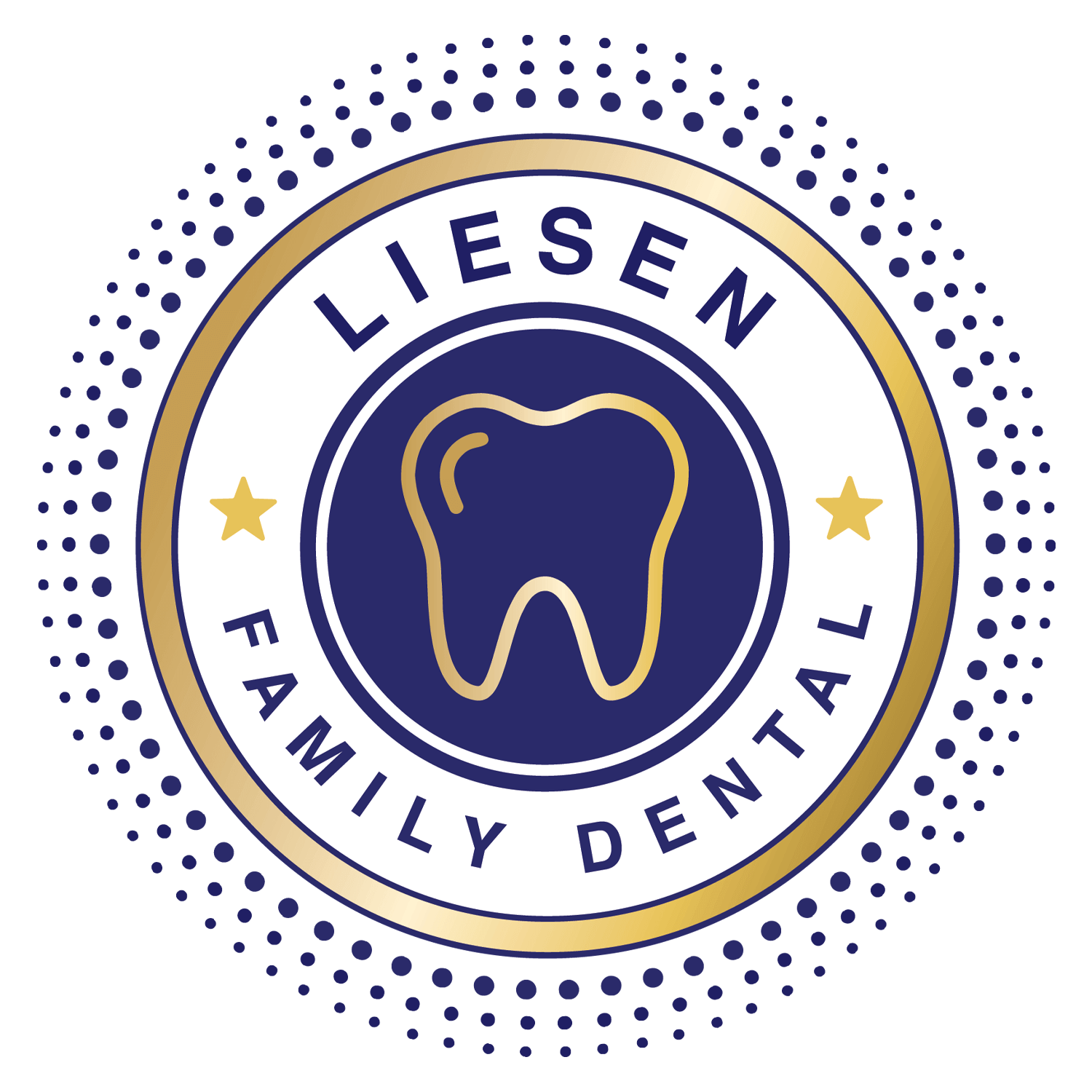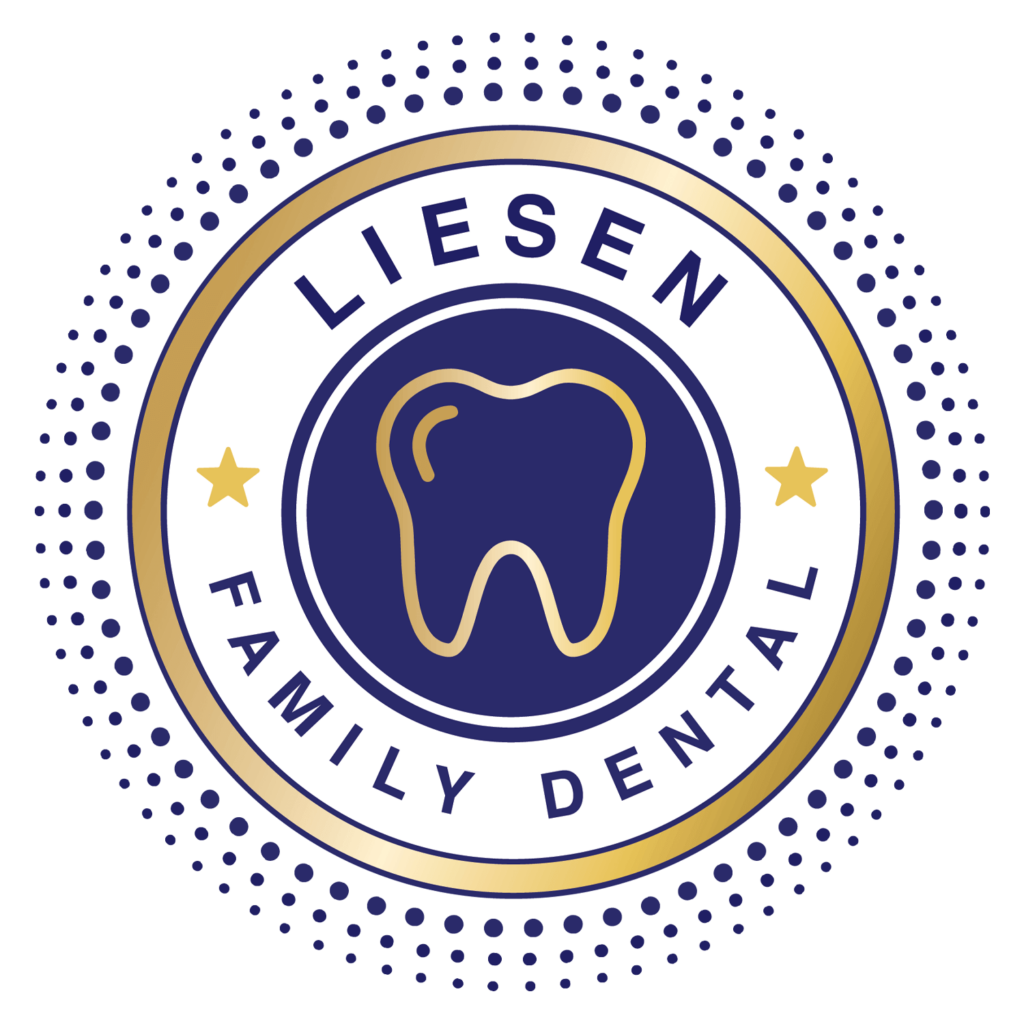Many of our patients at Liesen Family Dental in Collinsville, IL, pose a common question: “What is TMJ?” and “How long does TMJ last?”. TMJ stands for temporomandibular joint, the hinge connecting the lower jaw to the skull. This crucial joint enables us to talk, chew, and yawn. However, problems in this joint can lead to a disorder commonly referred to as TMJ disorder or TMD.
What Causes TMJ Disorder?
There are a variety of reasons why someone might develop TMJ disorders. Some common causes include:
- 1. Injury to the jaw or TMJ: A heavy blow or whiplash can injure the muscles of the neck and face.
- 2. Erosion of the joint: The TMJ can erode over time or due to certain medical conditions.
- 3. Arthritis: Osteoarthritis or rheumatoid arthritis can cause inflammation in the TMJ.
- 4. Clenching or grinding the teeth: This puts a lot of pressure on the joint and can result in TMJ problems.
- 5. Misalignment of the teeth or jaw: Sometimes, the way teeth fit together can put strain on the joint.
- 6. Stress: It can lead to behaviors like clenching the jaw or grinding the teeth.
Symptoms of TMJ Disorder
If you’re suffering from TMJ disorder, you may experience:
- - Pain or tenderness in the jaw
- - Aching pain around the ear
- - Difficulty chewing or discomfort while chewing
- - Aching facial pain
- - Locking of the joint, making it difficult to open or close the mouth
- - Clicking sound or grating sensation when opening the mouth or chewing
How Long Does TMJ Last?
Now, let’s tackle the commonly asked question, “how long does TMJ last?”
The duration of TMJ symptoms varies widely among individuals. For some, TMJ symptoms may be temporary and can be relieved with simple self-care practices or nonsurgical treatments. These symptoms may last a few days to a couple of weeks and then dissipate. For others, however, symptoms might persist and can even become chronic, requiring more invasive treatments.
Factors that affect how long TMJ lasts include:
- The severity of the injury: A more severe injury or damage to the TMJ might result in prolonged or even permanent symptoms.
- Underlying causes: If the TMJ disorder is due to arthritis or a long-standing habit of grinding the teeth, it might take longer to treat.
- Treatment: Seeking early intervention and adhering to the recommended treatment can shorten the duration of the symptoms.
Treatment Options
Treatment for TMJ disorder typically starts with conservative, nonsurgical therapies. At Liesen Family Dental, we believe in a patient-centric approach and recommend the following based on the individual’s needs:
- 1. Medications: Pain relievers, muscle relaxants, or anti-inflammatories might be prescribed.
- 2. Therapies: Physical therapy, counseling, or oral splints can help.
- 3. Dental work: If misalignment is the cause, braces or other dental interventions might be recommended.
- 4. Surgical procedures: In severe cases where nonsurgical treatments don't help, surgical treatments might be an option.
Preventing TMJ Disorder
Prevention is always better than cure. Here are a few steps to minimize the risk of developing TMJ problems:
- Avoid excessive jaw movements: Avoid activities that require wide mouth opening like yawning, singing loudly, or chewing gum.
- Manage stress: Engage in relaxation techniques to prevent clenching or grinding of teeth.
- Practice good posture: Maintain a good neck and head posture to reduce strain on the TMJ.
Book an appointment at Liesen Family Dental Today!
Understanding TMJ is the first step to addressing and treating its symptoms. At Liesen Family Dental in Collinsville, IL, we are committed to helping our patients achieve optimal oral health. If you suspect you have TMJ disorder or have questions about “how long does TMJ last?”, don’t hesitate to reach out to our experienced team. We’re here to help guide you through understanding, managing, and treating TMJ disorders.


